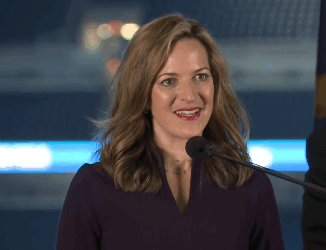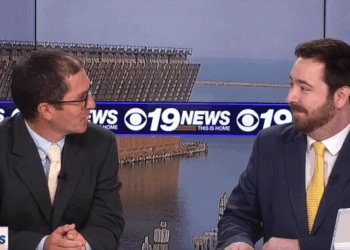WASHINGTON, D.C. – Michigan Senator Gary Peters (D-MI) said his latest legislation is in response to the massive storms that hit northern Michigan about a month ago. It took a while for crews to clean up the mess and get the lights back on but the Senator told WZMQ 19 News he hopes his legislation addresses issues with Michigan’s power grid.
“This legislation is really a response to the horrific storms we had in northern Michigan that knocked down infrastructure, power lines, and in particular left people- hundreds of thousands of people without power,” said the Senator. “And really, it’s an indication of the fact that we have an aging infrastructure, we need to upgrade it.”
Sen. Peters said we need to be better prepared for when the next storm hits.
“That’s why I’ve introduced very important legislation to extend a grant program to help local utilities invest in new equipment to be able to withstand storms and make sure power continues to come through,” said the Senator.
The legislation would reauthorize and update the Department of Energy’s Grid Resilience State/Tribal Formula grants program and Grid Resilience Utility and Industry grants programs. Peters said in the past, it’s provided Michigan over 123-million dollars in federal funding for much-needed grid improvements. The money can be used for things like undergrounding electrical equipment, utility pole management, relocating power lines and more. However, the programs are set to expire next year. Peters’ legislation would extend these programs through 2031.
Although this legislation has bipartisan support, many Republicans on the Hill are looking to slash spending. We asked the Senator how this legislation will fit into Republican’s spending goals.
“I think this legislation is important because it is about making sure we’re controlling costs and when you think about infrastructure like utility poles, if they get knocked down in a storm- which is what we saw across northern Michigan- it’s actually a whole lot more expensive to fix a system that has been heavily damaged by a storm than it is to actually build it strong upfront,” said Sen. Peters. “So, you actually save a lot of money when a lot of the work. When you look at building infrastructure more resilient, it shows that every dollar you put into making infrastructure stronger actually ends up saving taxpayers six dollars because it’s a whole lot more expensive to clean up after a natural disaster or after a storm. So, this is ultimately about saving taxpayer money and keeping their cost down.”
















